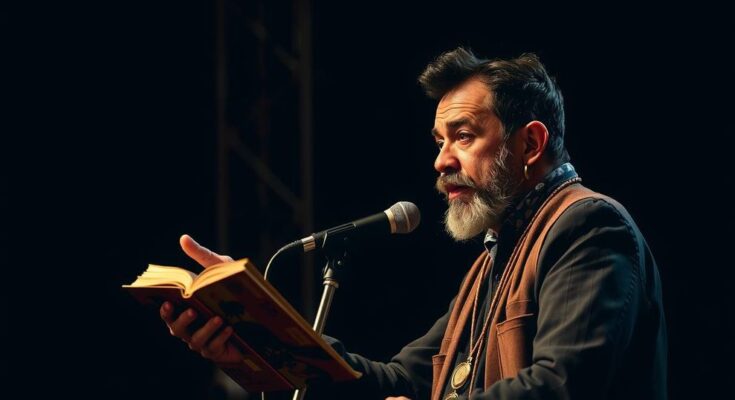Christian author Paul Anleitner asserts that a cultural shift has been brewing in America, underscored by the success of films like “Top Gun: Maverick,” the rise of non-traditional humor, and increasing enrollment in Christian schools. He notes a retreat from progressive norms as corporations cut back on DEI initiatives and audiences push back against perceived political correctness in entertainment. Anleitner suggests these trends indicate a collective cultural shift emphasizing traditional values over progressive ideologies.
In the wake of Donald Trump’s unexpected election victory, Christian author Paul Anleitner, who is also a pastor, examined the cultural shifts he believes have been unfolding in America over the years. Through a series of observations shared on social media, Anleitner outlined how blockbuster films like “Top Gun: Maverick” and the rise of unconventional humorists indicate a return to traditional values as opposed to progressive ideologies. Anleitner pointed to the success of “Top Gun: Maverick” as a testament to patriotic nostalgia, arguing that it appealed to viewers with its classic hero themes embodied by a strong, White male protagonist. The film resonated with millions, earning a massive box office return while critics voiced concern over its militaristic glorification. Moreover, he noticed a cultural embrace of humor that rejects political correctness, noting the popularity of comedians whose irreverence seems to connect more with the middle-class, particularly men, than traditional platforms like Saturday Night Live. Shifting educational preferences revealed yet another layer of this cultural transformation; Anleitner highlighted a significant uptick in enrollment at Christian schools, as families sought educational environments less steeped in progressive ideologies. The establishment of new schools reflective of this demand, like Cornerstone Christian Academy, showcases parents taking a stand against perceived indoctrination in public education. Anleitner also mentioned the noticeable downsizing of Diversity, Equity, and Inclusion (DEI) initiatives in major corporations. As companies like Google rescinded their earlier commitments to DEI, it seemed a cultural reckoning was taking shape, signaling a collective response against policies that many felt had veered too far. Even in the realm of entertainment, the backlash against progressive interpretations in franchises like “Star Wars” indicates a growing discontent among audiences. The cancellation of the series “The Acolyte” after disappointing viewer ratings exemplified a resistance to changes many consumers viewed as unwelcome. Finally, Anleitner humorously mused about the revival of the rock band Creed, suggesting its retro appeal symbolizes a broader cultural fatigue with irony and cynicism, heralding a desire for more straightforward, wholesome entertainment. In conclusion, Anleitner posits that these examples underscore a cultural shift that is more telling than political analysis alone. By recognizing these cultural signals, we may find more profound truths about societal direction than what conventional polling might reveal.
The article discusses cultural shifts in America through the lens of recent events and entertainment trends, particularly noting how they reflect broader societal changes over the past few years. With Trump’s election as a backdrop, the narrative investigates various cultural phenomena, including the success of specific films, the rise of comedic voices outside the mainstream, changing family educational choices, and the corporate retreat from DEI initiatives. These elements suggest an evolving landscape in which traditional American values seem to be reasserting themselves against a backdrop of progressive movements.
Ultimately, Anleitner’s reflections present a narrative of cultural resurgence, where traditional values and preferences are gaining traction amid a backdrop of increasing skepticism towards progressive ideologies. The trends he identifies—from the popularity of patriotic films to the growing enrollment in Christian schools—highlight a collective yearning for familiarity, straightforwardness, and a return to what some see as fundamental values. This shift, he argues, could have significant implications for understanding the American cultural landscape.
Original Source: www.foxnews.com



